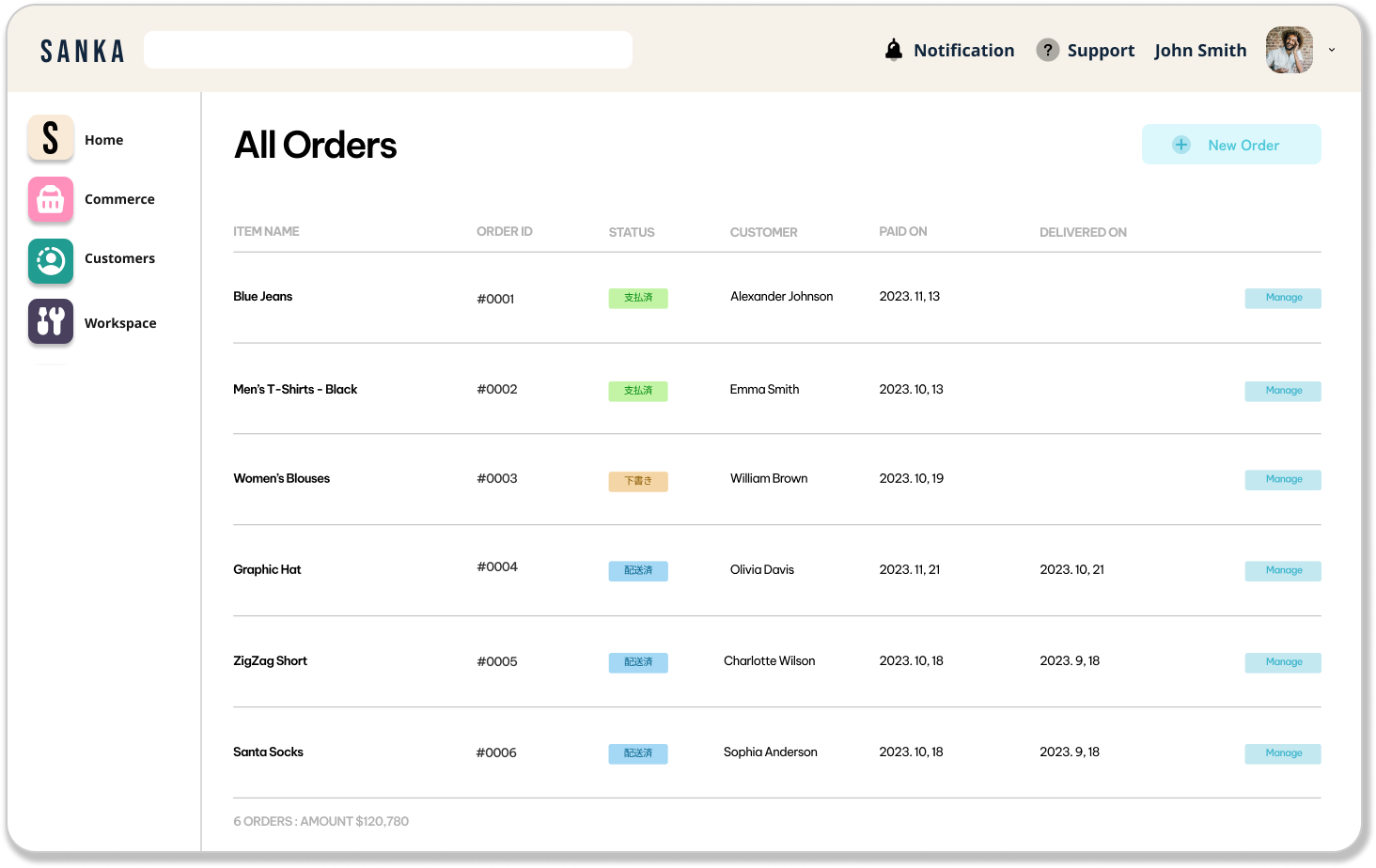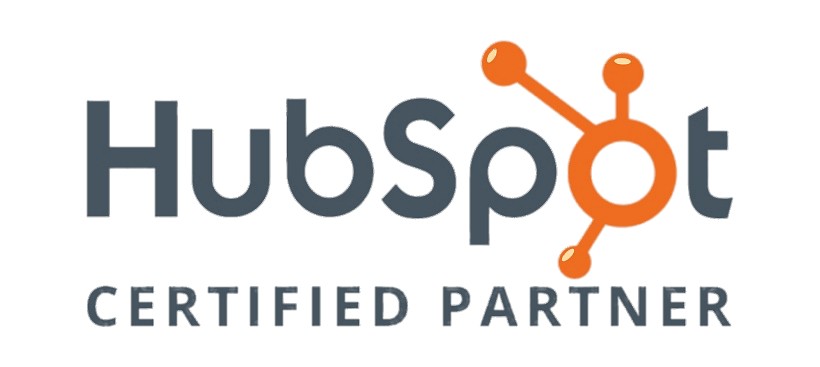Introduction
In our increasingly interconnected world where technology reigns supreme, digital transformation platforms have emerged as catalysts, propelling businesses, individuals, and society into the digital age.
They provide powerful avenues for social interaction, commercial operations, knowledge sharing, content creation, and the like, deeply impacting our day-to-day lives and operations.
These platforms provide a robust foundation for organizations to reimagine and reinvent their processes, embrace new technologies, and stay ahead in a hypercompetitive marketplace.
In this blog, we explore some of the best digital platforms across various categories, exploring their features, benefits, and real-world applications.
Whether you’re an entrepreneur seeking a transformative solution for your business, a professional eager to upgrade your productivity, or an individual looking to reap the benefits of the digital revolution, you'll find this guide insightful.
What is a Digital Transformation Platform
Digital Transformation Platforms (DTPs) are comprehensive technology solutions that help businesses undergo digital transformation by integrating advanced technologies, automating processes, and enhancing the end-to-end customer experience.
These platforms play a crucial role in streamlining the transition from traditional workflows to digital ones, cultivating a digital-first mindset across organizations.
Some key features of digital transformation platforms include:
- Integrating multiple services and tools for workflow automation, analytics, and customer engagement.
- Fostering collaboration and communication across teams and departments.
- Offering scalable and flexible solutions, allowing businesses to adapt to changing needs.
- Providing insights and analytics to measure the performance and impact of digital initiatives.
Types of Digital Transformation Platforms
Enterprise Resource Planning (ERP) Platforms
ERP platforms are comprehensive systems that manage and integrate an organization's financial, supply chain, operations, reporting, and human resources data.
Examples of popular ERP platforms include:
- SAP
- Oracle ERP Cloud
- Microsoft Dynamics 365
- Infor CloudSuite
Customer Relationship Management (CRM) Platforms
CRM platforms support the management of an organization's interactions with customers and prospects, tracking sales, marketing, customer support, and other customer-focused activities.
Popular CRM platforms include:
- Salesforce
- HubSpot CRM
- Zoho CRM
- Microsoft Dynamics CRM
Collaboration and Communication Platforms
These platforms facilitate seamless communication and collaboration among team members and across departments within organizations.
They often include file sharing, project management, and real-time messaging features. Examples of collaboration and communication platforms are:
- Slack
- Microsoft Teams
- Google Workspace (formerly G Suite)
- Asana
E-commerce Platforms
E-commerce platforms provide the technology infrastructure and tools necessary for online sales and order management, enabling businesses to manage product listings, inventory, payments, shipping, and customer communication.
Common e-commerce platforms include:
- Shopify
- WooCommerce
- Magento
- BigCommerce
The Top List of Digital Transformation Platforms
Sanka
Sanka is an all-in-one digital transformation platform that provides businesses with various applications and services to optimize their workflows, promote efficient resource utilization, and enhance overall operational efficiency.
With its powerful suite of tools, the platform enables businesses to centralize and consolidate their workflows, offering customizable apps and integrations tailored to their unique needs.
Specialization
The platform specializes in providing flexible solutions to various business needs, ranging from workflow management, IT cost reduction, Customer Relationship Management (CRM), Integration Platform as a Service (iPaaS), and Enterprise Resource Planning (ERP).
The specialization of Sanka lies in its ability to cater to these diversified requirements under one unified platform.
Key Features
- All-in-one Super App: Sanka hosts over 20 integrated applications, allowing businesses to centralize their workflows and optimize operational expenditures.
- Flexible Solutions: The platform empowers users to customize apps and integrations to build a tailor-made solution specific to their needs.
- Dedicated Support: Sanka offers consulting and development services, backed by a team of professionals with over ten years of experience in digital transformation.
- Trusted by Industry Leaders: The platform has earned the trust of over 1,000 clients, serving great industry leaders and benefiting more than 100 users.
- Competitive Pricing: Sanka provides a comprehensive ROI for businesses through its competitive pricing offerings.
Real-world Applications
Sanka caters to a wide range of business needs and offers multiple applications to boost productivity and streamline workflows. Some popular applications include:
- TaskFlow: A comprehensive project management solution that ensures seamless project workflows and task management.
- GoalSetter: An effective tool for tracking goals, check-ins, and company updates.
- CustomerLink: A powerful CRM solution that lets businesses manage customers, deals, and relevant lists.
- SpendPocket: A versatile tool for managing expenses, automated accounts payable, and establishing budgets.
- InvoiceMove: A smart invoicing system that generates estimates, invoices, and receipts.
- OrderMake: A reliable solution for tracking orders, items, and inventory.
- ContactLine: A customer support tool integrated with a chatbot and call center capabilities.
- CampaignScale: A social media management platform for monitoring emails and advertisements.
The platform also enables users to create and automate workflows based on specific use cases, such as:
- Publish social media posts when new WordPress content is created.
- Create and publish press releases.
- Generate bulk invoices.
- Create and publish job postings.
Sanka has proven to be a pivotal digital transformation platform for businesses looking to optimize their workflows and embrace the future of work.
With its extensive suite of applications, dedicated support, and competitive pricing, Sanka is well-positioned to serve as a trusted partner in your digital transformation journey.
Oracle
Oracle is a leading digital transformation platform that delivers a wide range of cloud applications, platform services, and engineered systems.
Oracle offers comprehensive and completely integrated cloud applications and platform services to serve businesses across various industries and sizes.
Their resources enable businesses to automate their operations, make data-backed decisions, provide excellent customer experiences, and drive innovation across the organization.
Specialization
Oracle's expertise is quite wide-ranging, with the platform having developed proficiencies across the tech spectrum.
Still, its main specialization lies in providing cloud solutions, including Software as a Service (SaaS), Platform as a Service (PaaS), Infrastructure as a Service (IaaS), and Data as a Service (DaaS).
Oracle's cloud solutions span ERP, CRM, HR, and SCM systems, as well as an extensive range of industry-specific applications.
Key Features
- Cloud Applications and Cloud Platform: Oracle delivers a comprehensive suite of cloud applications, platform services, and engineered systems. Its offerings include applications for ERP, SCM, HCM, and CRM, among others. It also provides a robust cloud platform that supports application development, data management, integration, analytics, and more.
- Database Services: Oracle is especially renowned for its advanced database services, which provide organizations with a cutting-edge platform to securely store, organize, and access their data.
- Artificial Intelligence & Machine Learning Integration: Many Oracle solutions integrate AI and machine learning technologies, enabling organizations to leverage these advanced technologies to automate tasks, make data-driven decisions, and gain valuable insights.
- Security: Oracle’s platform is engineered with multiple layers of security to ensure the confidentiality, integrity, and availability of data. This is complemented by Oracle's extensive compliance certifications which include GDPR, ISO27001, SOC1 & SOC2.
- Integrated Solutions: Oracle provides integrated solutions in areas such as finance and accounting, human resources, customer experience, procurement, supply chain, and more. These solutions are comprehensive, and they are designed to improve all facets of an organization's operations.
Real-world Applications
Here are several examples of how organizations have leveraged the Oracle digital transformation platform:
- FedEx: FedEx used Oracle Cloud ERP and EPM to respond to change twice as fast as before. The automation empowered by Oracle helped cut manual effort, enhancing operational efficiency.
- Lighthouse Info Systems: As an ERP provider, Lighthouse Info Systems utilized Oracle Cloud Infrastructure to lower costs for its customers by 15%, whilst also improving availability and security.
- Discover: Discover's financial services engineering teams used Oracle's technologies and processes to achieve faster product releases – four times more rapidly than before.
- Red Bull Ford: Red Bull Ford leveraged Oracle's Cloud-based high-performance computing to design and build a new hybrid power unit for the 2026 racing season.
Salesforce
Salesforce is a digital transformation platform that offers a suite of cloud-based CRM solutions and applications.
The platform specializes in helping businesses automate sales, customer support, and marketing processes, allowing them to connect with customers in unique and meaningful ways.
Specialization
Salesforce's specialization lies in providing cloud-based CRM solutions and applications for various business needs.
Their extensive portfolio includes CRM solutions for sales, service, marketing, commerce, and analytics.
Salesforce has also developed various industry-specific applications and tools, further solidifying its position as a comprehensive digital transformation platform.
Key Features
- Sales Cloud: A sales automation and lead management solution that helps businesses close more deals quickly and efficiently.
- Service Cloud: A customer support platform that enables organizations to provide exceptional customer experiences through faster case resolution and personalized support.
- Marketing Cloud: An integrated digital marketing platform that provides tools for email marketing, social media management, and advertising, allowing businesses to build and maintain customer relationships for life.
- Commerce Cloud: An e-commerce platform that enables businesses to create seamless shopping experiences across multiple channels, ensuring customer satisfaction and driving growth.
- Trailhead: Salesforce's comprehensive learning platform that allows individuals to learn valuable skills, such as Salesforce digital and soft skills, free of charge.
Real-world Applications
Salesforce has empowered numerous businesses around the world to grow and scale operations:
- Small Business Solutions: Salesforce offers a single app that helps small businesses sell smarter and provide faster customer support – an all-in-one CRM solution tailored for small businesses.
- Industry-specific Applications: Salesforce provides industry-specific CRM solutions and tools for sectors such as financial services, healthcare, retail, and more, allowing businesses to adapt to their unique needs and requirements.
- Large Enterprise Solutions: Salesforce not only caters to small businesses but also provides solutions for larger enterprises, allowing them to consolidate and streamline their sales, service, and marketing operations on a single platform.
BPM-D
BPM-D, which stands for "Business Process Management Discipline," is a digital transformation platform that specializes in process management consultation, education, and support.
Their primary focus is on helping organizations achieve strategic goals and superior performance through the establishment and application of BPM discipline.
BPM-D offers comprehensive consulting services, tailored education programs, and a wide range of resources, enabling clients to achieve successful digital transformation and improve business performance.
Specialization
BPM-D specializes in creating a BPM discipline, strategically employing process management to prepare businesses for successful digital transformation.
They offer consulting services in process management discipline, rapid improvement and transformation, smart automation, and stakeholder and customer journey planning.
Additionally, they provide education programs and resources to enrich clients' understanding of BPM principles and support them throughout their digital transformation journey.
Key Features
- Process Management Discipline: BPM-D offers a structured approach to establishing and maintaining a roadmap, governance, analytics, repository, and tools for effective process management.
- Rapid Improvement & Transformation: They provide structured, fast, and reliable process improvement and transformation services to guide businesses in aligning their processes with strategic goals.
- Smart Automation: BPM-D focuses on value-driven and process-led automation, supporting organizations in selecting the right automation opportunities and maximizing the return on investment.
- Stakeholder & Customer Journey Planning: Their services help businesses establish a superior customer experience by focusing on customer journey mapping and stakeholder engagement.
- Education: BPM-D offers tailored education courses for both executives and practitioners, providing them with the skills necessary to establish and maintain a disciplined approach to BPM.
Real-world Applications
BPM-D has successfully delivered transformation and improvement initiatives to numerous clients across diverse industries and sectors. Some of their real-world applications include:
- Integrated Controls Management at Shipping Corporation: BPM-D helped the shipping corporation develop a robust process management solution to manage their integrated controls.
- RPA Discovery at a Transport Infrastructure Construction Firm: BPM-D guided the firm in identifying and prioritizing RPA opportunities to optimize their business processes.
- Rapid Process Improvement at a Shipping Company - Order to Cash: They provided a structured approach to drive rapid process improvement, streamlining the order-to-cash process for the shipping company.
- RPA Health Check to Supercharge RPA Program for Major Insurance Company: BPM-D performed an RPA program health check to identify bottlenecks and optimize the RPA outcomes for an insurance company.
- Digital Transformation in Major Insurance Company: They guided the insurance company through its digital transformation journey and helped it achieve maximum performance.
WSO2
WSO2 is an open source technology provider that specializes in bringing digital transformation to organizations.
The platform enables the creation of distinct digital experiences through the help of APIs, integrations, and identity and access management solutions.
WSO2 offers a unique blend of on-premise and cloud solutions, thus providing the flexibility that modern businesses require.
Specialization
WSO2 is primarily centered around three main areas:
- API Management: WSO2 facilitates extensive API management capabilities that can be deployed across any infrastructure, allowing businesses to manage services as APIs, harnessing business insights through robust monitoring.
- Integration: WSO2's integration portal allows for the seamless integration of APIs, services, and data from diverse sources, thus enabling efficient data consolidation and streamlining of workflows.
- Identity and Access Management (IAM): Through its comprehensive Identity and Access management portfolio, WSO2 ensures a secure digital environment for both workforce IAM and CIAM solutions.
Key Features
- API Management: WSO2 provides a 100% open source, enterprise-grade API management solution that can be deployed across any infrastructure. It enhances API lifecycle management and provides businesses with valuable insights.
- Integration: WSO2 offers powerful integration capabilities with its graphical designer, facilitating the consolidation of data from a variety of systems, including SaaS, proprietary, and legacy.
- Identity and Access Management: Delivering modern IAM capabilities, WSO2 provides a comprehensive solution that can be easily built into a company’s customer experience applications.
- Internal Developer Platform: Focusing on developer productivity, WSO2 provides a SaaS Choreo that helps developers build, deploy, and monitor cloud-native applications on any cloud platform.
Real-world Applications
- Qantas IT: WSO2 supported Qantas IT to successfully launch its platform with remote trial support and excellent ongoing assistance.
- Laposte: WSO2 collaborated with Laposte to build a scalable platform that transformed their business. WSO2 played a significant role in their API-first strategy, resulting in 43 million daily API calls.
- Ericsson: WSO2 was a key partner in empowering Ericsson's Innovation Cloud with the Identity Server and API Manager for seamless authentication and connectivity.
Appian
Appian is a high-productivity, low-code software platform that provides tools to design, develop, and deploy powerful enterprise-grade applications and workflows.
By fundamentally transforming the way businesses innovate, Appian streamlines processes, boosts operational efficiency, reduces costs, and fosters seamless collaboration across teams.
Specialization
Appian specializes in the following areas:
- Low-Code Automation: Appian's platform empowers businesses to develop applications swiftly using a visual paradigm rather than traditional coding, fostering rapid business transformation.
- Process Automation: The platform offers capabilities for end-to-end process automation, from Robotic Process Automation (RPA) and Artificial Intelligence (AI) to Intelligent Document Processing (IDP) and API integrations.
- Case Management: The platform allows organizations to develop solutions for advanced, dynamic case management to improve decision making and process outcomes.
Key Features
- Low-Code Development: Appian accelerates digital transformation by enabling the fast creation of enterprise-grade applications with minimal hand-coding. The visual design interface allows users to bring ideas to market faster and adapt quicker to changes.
- Process Automation: Appian delivers end-to-end process automation with capabilities like RPA, AI, IDP, and API integrations. It's ideal for reducing manual and time-consuming tasks, improving accuracy, and increasing process speed.
- Data Fabric: Appian's Data Fabric feature offers a virtual data layer, providing unified data from across various systems without the need for physical data movement.
- Total Experience Management: This feature allows businesses to create exceptional experiences for every user with mobile-ready capabilities and web portals.
Real-world Applications
- Financial Services: Banking processes can be modernized rapidly to meet market demands and regulatory requirements, managing risks while remaining resilient.
- Insurance: Appian delivers intelligent and connected insurance experiences to improve operational efficiencies with solutions like Connected Underwriting and Connected Claims.
- Government: Government agencies use Appian to speed up the development of mission-critical systems, streamline citizen services, and manage procurement processes consistently and efficiently.
- Life Sciences: Appian has been used by organizations in the healthcare industry to deliver better patient outcomes through improved operational efficiency, ensuring product quality, and improving internal monitoring of regulatory tasks.
AWS
AWS is Amazon's comprehensive and broadly adopted cloud platform, providing over 200 fully-featured services from data centers globally.
They offer a multitude of functionalities, like computing power, storage options, networking, and databases, tailored to meet the individual needs of organizations.
AWS's secure cloud services platform offers application building blocks and infrastructure that enable organizations to deploy applications and services in a swift, flexible, secure, and scalable way.
Specialization
AWS caters to a wide range of cloud computing services:
- Compute: AWS offers reliable, scalable, and inexpensive cloud computing services such as Amazon Elastic Compute Cloud (EC2) and AWS Lambda.
- Storage: AWS provides scalable cloud storage services like Amazon S3 and Amazon Glacier to support both application data requirements and archival.
- Database: AWS offers a variety of databases to fit different applications, such as Amazon RDS for relational databases, and DynamoDB for NoSQL solutions.
- Networking & Content Delivery: AWS delivers advanced networking capabilities such as isolated cloud resources, dedicated private network connections, accelerated content delivery, and load balancing features.
- Analytics: AWS provides powerful services for cost-effective data warehousing, easy-to-use big data processing, and sophisticated data analysis tools like Amazon Redshift and Amazon QuickSight.
- Artificial intelligence (AI) and Machine Learning (ML): AWS offers a broad set of AI and ML services, enabling the creation of fully-managed models with SageMaker, forecasts with Amazon Forecast, and recommendations with Amazon Personalize.
Key Features
- Broad Platform: AWS offers more than 200 full-featured services, including computing, storage, databases, networking, analytics, robotics, AI, IoT, mobile, security, AR/VR, media, and app development.
- Secure & Reliable: AWS provides a resilient and protected environment with end-to-end security and privacy features that are continually audited for the most rigorous compliance standards.
- Scalable & High-performing: AWS's cloud infrastructure scales on demand to support virtually any workload, delivering high availability and fault tolerance.
- Global Network: AWS comprises 81 Availability Zones within 25+ geographic regions around the world and plans for more regions and more Availability Zones.
- Innovative ML tools: AWS offers AI-powered coding assistance and ML tools that accelerate development timelines.
Real-world Applications
- Netflix: AWS supports the vast computing needs of Netflix, enabling them to deliver great streaming experience to millions of customers worldwide.
- Unilever: Unilever uses AWS for digital marketing, advanced analytics, and creating a next-generation, AI-driven, platform for data and analytics.
- Adobe: Adobe runs its cloud-based applications on AWS for performance, innovation, and to reduce IT costs.
- Airbnb: Airbnb uses AWS to scale its applications and support its global community efficiently.
The Microsoft Ecosystem
The Microsoft Ecosystem is a diverse collection of open-source projects and initiatives designed to encourage digital transformation across various industries.
The Microsoft Ecosystem facilitates cooperation with developers, organizations, and communities on projects hosted on GitHub and beyond.
This ecosystem collectively empowers every person and organization on the planet by supporting and collaborating on open-source technology and processes.
Specialization
The Microsoft Ecosystem specializes in supporting and contributing to a wide range of open-source projects, initiatives, and foundations:
- Infrastructure and Development: Strong support for programming languages, libraries, and tools (e.g., Rust, Python, Webpack, Babel, ESLint).
- Operating Systems: Cooperation with open source-driven platforms and tools like Systemd and GNOME for Linux environments.
- Mapping and Visualization Tools: Contributions to mapping projects like OpenStreetMap and visualization tools like Mermaid-JS.
- Networking and Data Management: Collaboration with various networking and data management projects like MSYS2, Leaflet, Curl, QEMU, and more.
- Web and Mobile Development: Participation and contributions to web and mobile development projects.
- Game Development: Support for open-source game engines such as Godot.
Key Features
- Collaboration: Microsoft actively participates and collaborates with the open-source community to develop and improve technologies and tools.
- Innovative Solutions: The Microsoft Ecosystem fosters cutting-edge solutions across various domains, from programming languages and web development to mapping, visualization, and game development.
- Funding and Support: Microsoft's FOSS Fund is a program that allows employees to select open-source projects they are passionate about and award them with $10,000 sponsorship.
- Open-Source Pioneering: Microsoft pioneers inclusiveness and diversity in the open-source community, supporting initiatives and organizations built on open-source technology.
Real-world Applications
- App development: Utilizing the Microsoft-supported programming languages, libraries, and tools to develop web, mobile, and desktop applications.
- Infrastructure: Utilizing infrastructure and development tools for improving cloud computing, networking, and data management services.
- Mapping and Visualization: Employing mapping services like OpenStreetMap for location-based solutions and Mermaid-JS for creating complex diagrams.
- Game development: Leveraging open-source game engines like Godot for game development and education.
Google Workspace
Previously known as G Suite, Google Workspace is a one-stop solution for businesses aiming to boost their productivity and collaboration.
It is an ecosystem that brings together a collection of productivity tools such as Gmail, Calendar, Meet, Chat, Drive, and more, all connected for seamless interoperability.
Specialization
Google Workspace comprises a myriad of solutions for different types of needs and sectors:
- For Businesses: It's a modern productivity suite to help businesses innovate, collaborate and move fast. Offerings include custom business emails, cloud storage, video conferencing, and collaborative documents creation tools.
- For Enterprises: For enterprises, Google Workspace offers all Business features and adds advanced features like Admin console and Vault for eDiscovery as well as audit reports.
- For Education and Nonprofits: Google Workspace includes cloud-native tools that can help these organizations to innovate, collaborate, and make the most out of their resources in a frictionless manner.
Key Features
- Communication: Google Workspace offers communication tools such as Gmail for email, Meet for video conferencing, and Chat for messaging.
- Productivity and Collaboration: It includes Docs for word processing, Sheets for spreadsheets, Slides for presentations, Forms for creating surveys, and Sites for website building.
- Content Storage and Sharing: Drive provides secure cloud storage with shared drives, making it easy to collaborate with teams.
- Management and Security: It provides control and visibility with the Admin console and Vault. These tools help businesses to secure their data and configure security settings.
Real-world Applications
- Corporate Collaboration: Google Workspace is frequently used by organizations globally for communication, document collaboration, scheduling meetings, and maintaining agendas.
- Education: Many educational institutions use Google Workspace for managing classes, distributing assignments, and fostering student collaboration.
- Nonprofits: Nonprofit organizations benefit from Google Workspace's collaboration tools to organize their work, manage volunteers, and plan events.
- Startups and Small Businesses: Small businesses and startups leverage Google Workspace to streamline their operations, boost productivity, and reduce IT costs.
Conclusion
Digital transformation platforms are the cornerstone for any organization looking to thrive in the digital era.
These powerful solutions transcend traditional operational boundaries, streamline processes, and enhance customer experiences, enabling businesses to stay agile and innovative amidst ever-changing market conditions.
Invest time and research into finding the perfect match for your organization's unique needs, and unlock the limitless potential that digital transformation platforms afford. Happy digitizing!








